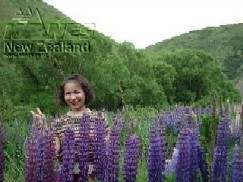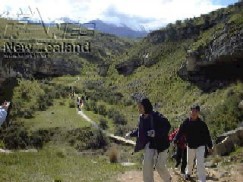|





Giant Moa (Canterbury Museum)


|
Among the many different forests, mountains and coasts we can explore the way
plants depend on each other and see also competition, needs, regeneration
sequences, specialised survival adaptations, carbon cycle and global warming
phenomena. We take a look at management systems, National Park's Act
replanting programmes and natural regeneration processes after glacier recession
and landslides.
Unique Birds
Most animals are birds have evolved to meet the special
New Zealand food and few predators. Visits to animal parks help us see and
understand the reasons for these special adaptations.
Of particular interests are the Kiwi, Kea and Moa.
Unique Plants
Because of the lack of herbivores and a wide range of weather conditions we
find many unique plants. Interested groups study the way plants have adapted to meet severe
conditions including cold, snow, wind, water and strong sun. We explore coasts,
swamps, forests and mountains to view plants competing for space and life
giving forces.
Studies look at different species from giant forest trees, through all the
interesting plants in the various rain forest layers to the decomposition
process of the soil they all rely on. Coastal dune plants, alpine plants,
fungi, and aquatic plants also offer information of interest. We see
explore how plants claim back land cleared by volcanic and glacier
eradication.
Other native life forms
These include, reptiles, frogs and insects.
Exotic life forms now arrive
and impact the balance
Large numbers of different highly mobile and competitive animals and plants
have been recently introduced by humans. We explore how these are impacting
on the native species and follow the many projects, laws and policies in
place to reduce the impact of these species on the unique native life forms
that developed in a different world for 75 million years.
Learning
through experience
We visit areas of several different
microclimates,
nature parks, and information centres where lectures and displays are available. Worksheets, notes and evening reviews can be incorporated as
required.
See also
Rainforests
Mount Cook Studies
Alpine Vegetation
Alpine Conservation
General Conservation
|
 New Zealand Learning Adventures
New Zealand Learning Adventures






